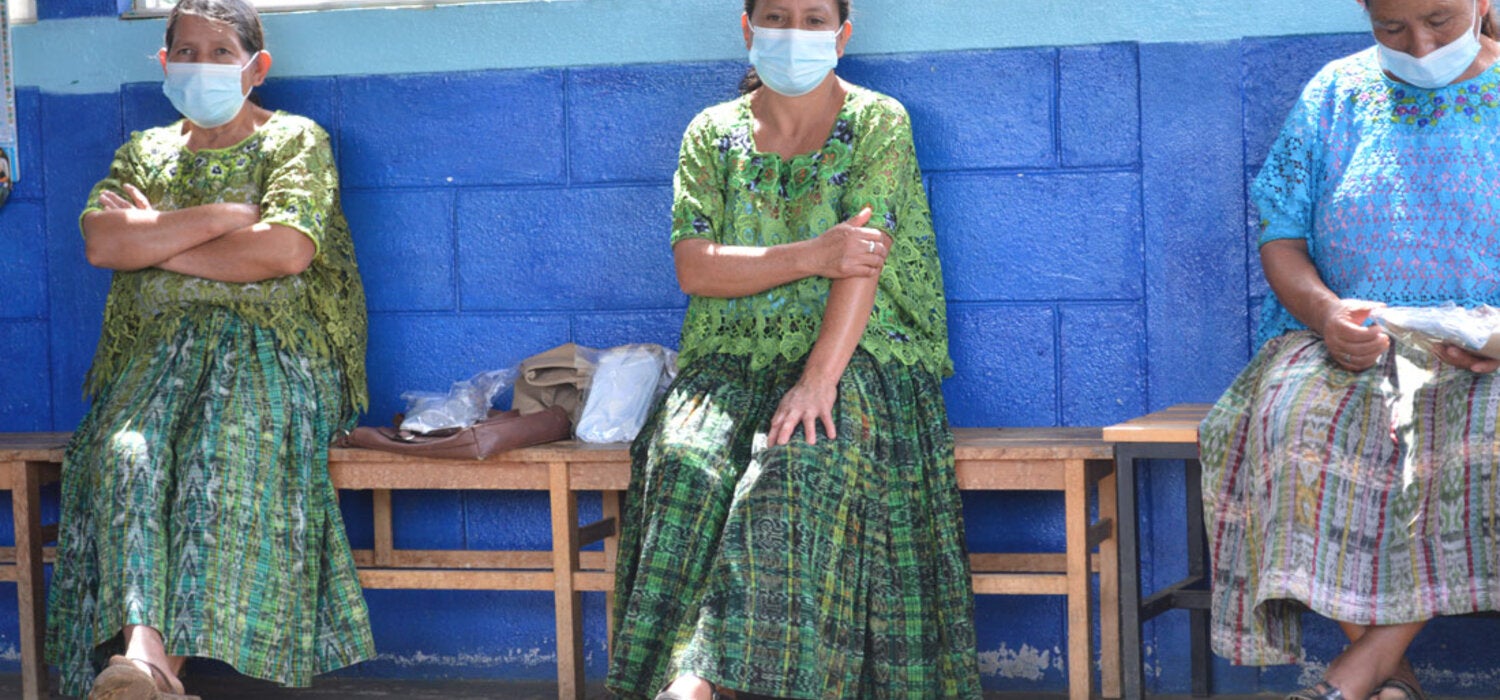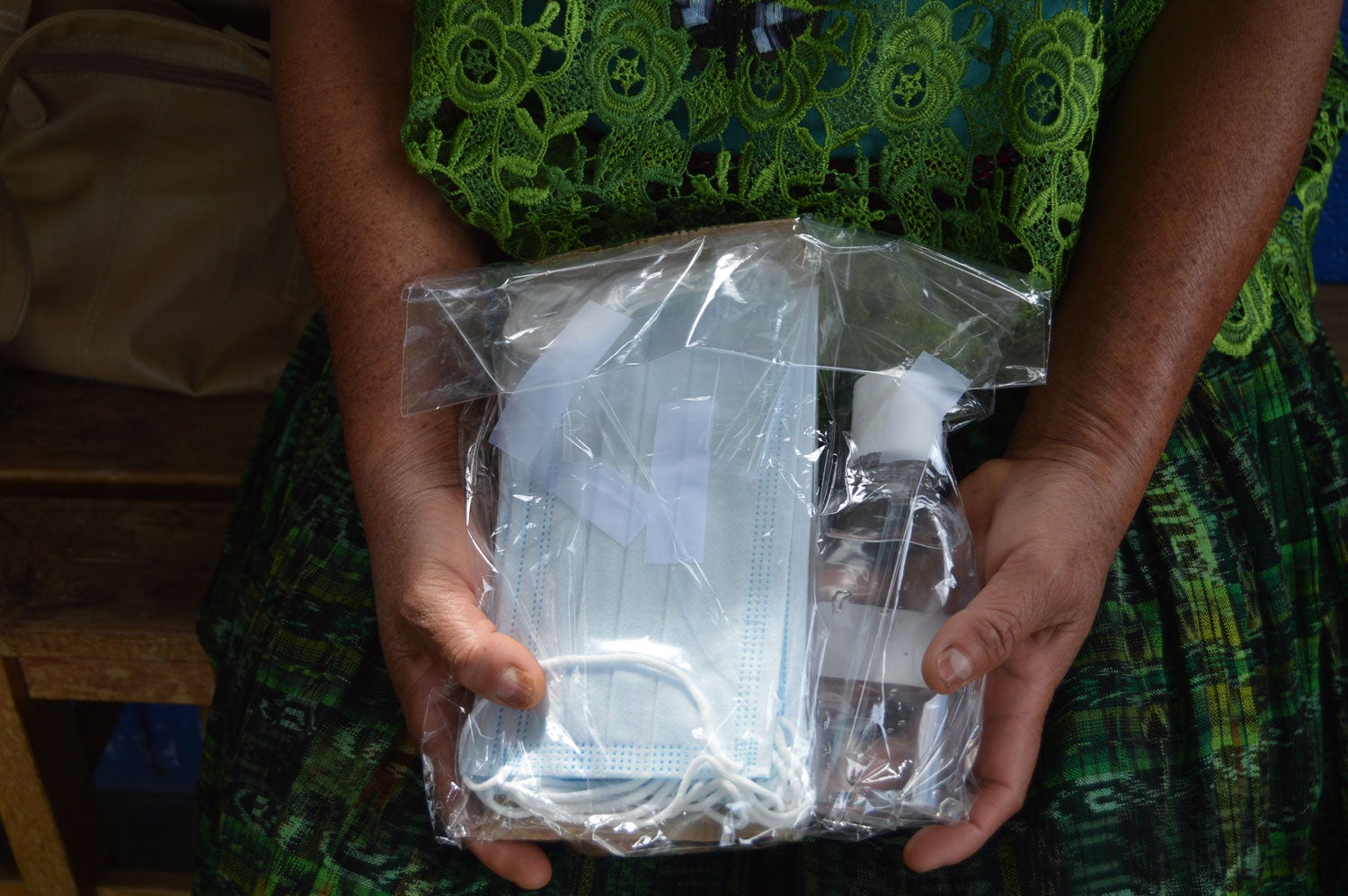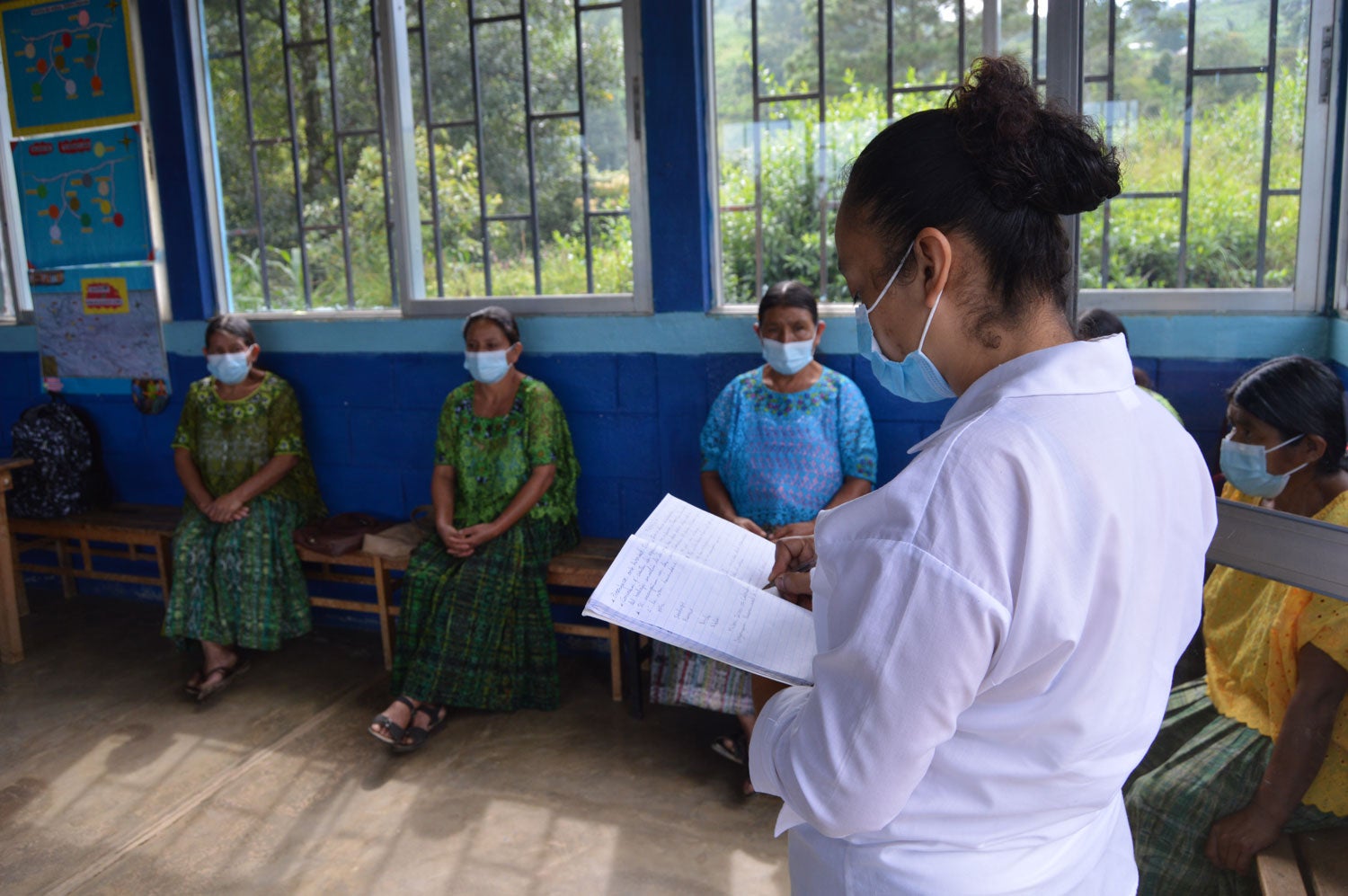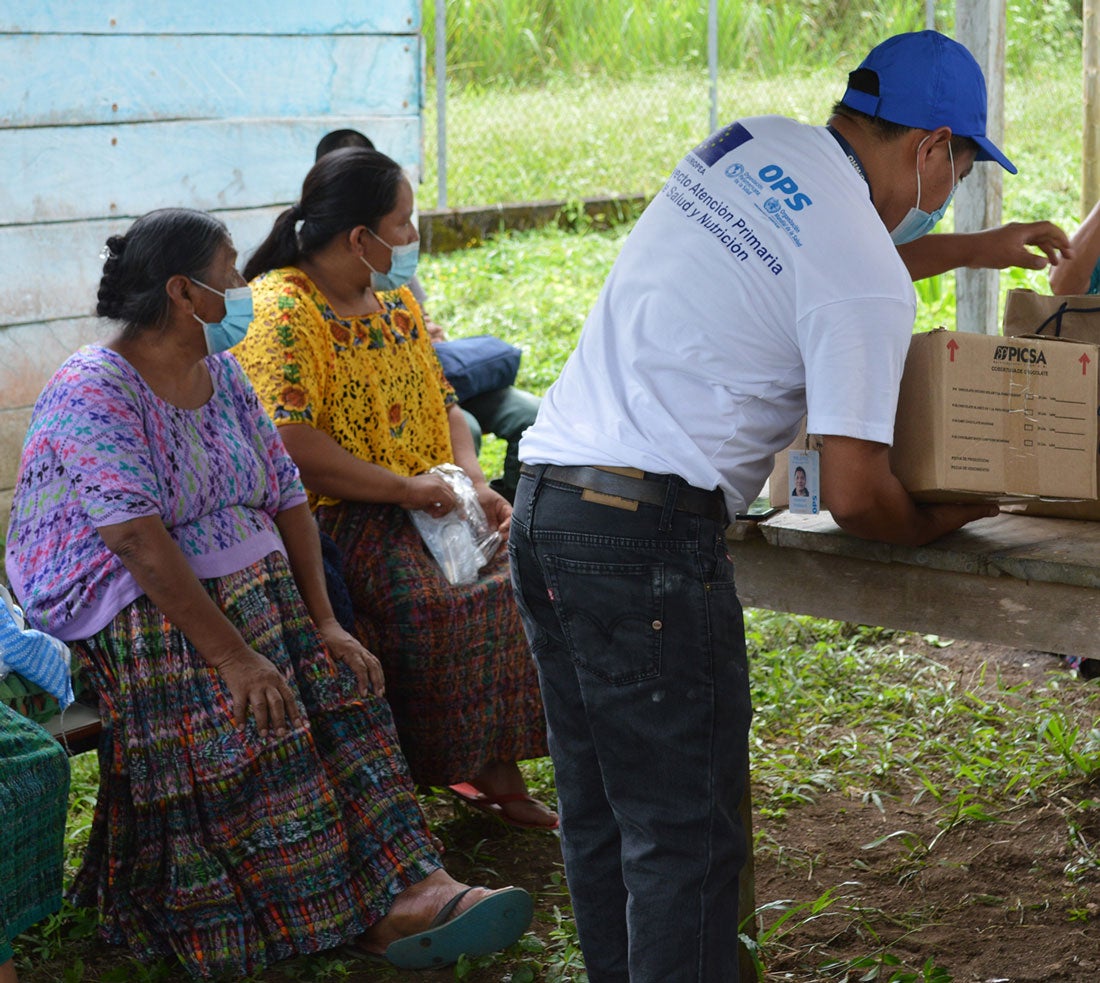August 9, 2021
In March 2021, Guatemala began vaccination against COVID-19 prioritizing health personnel, including traditional midwives, Mayan women who are part of the group of traditional therapists recognized by the Ministry of Public Health and Social Assistance (MSPAS).
Their scope is not minor. Of the 22 Mayan groups in Guatemala, the Q'eqchi' population constitutes the second largest ethnolinguistic group, with around 1.3 million people according to the 2018 National Population Census. They also represent the third most spoken language in the country, after Spanish and K'iche'. They inhabit an extensive region that includes highlands and warm lowlands, found in four departments and part of Belize.
For several Mayan communities, including the Q'eqchi' culture, the service midwives provide to other women is associated with a gift, which is a call made to them through dreams or visions.
Among the Q'eqchi' of the highlands is the community of San Pablo Xucaneb, in Cobán, Alta Verapaz. This community has five midwives who combine Western learning, skills and methods with their own cultural knowledge, practices and rituals to help pregnant women and their newborns, as well as to advise teenagers and guide the community on health issues.
By the end of July 2021, four of these midwives, ages 45 to 55, accepted immunization against COVID-19 and completed the two-dose schedule. Leslie Xol Tut, who is part of a network of professionals trained by the Guatemalan Ministry of Public Health and Social Assistance to follow up on COVID-19 cases, has also accompanied the group of Mayan Q'eqchi' midwives.




